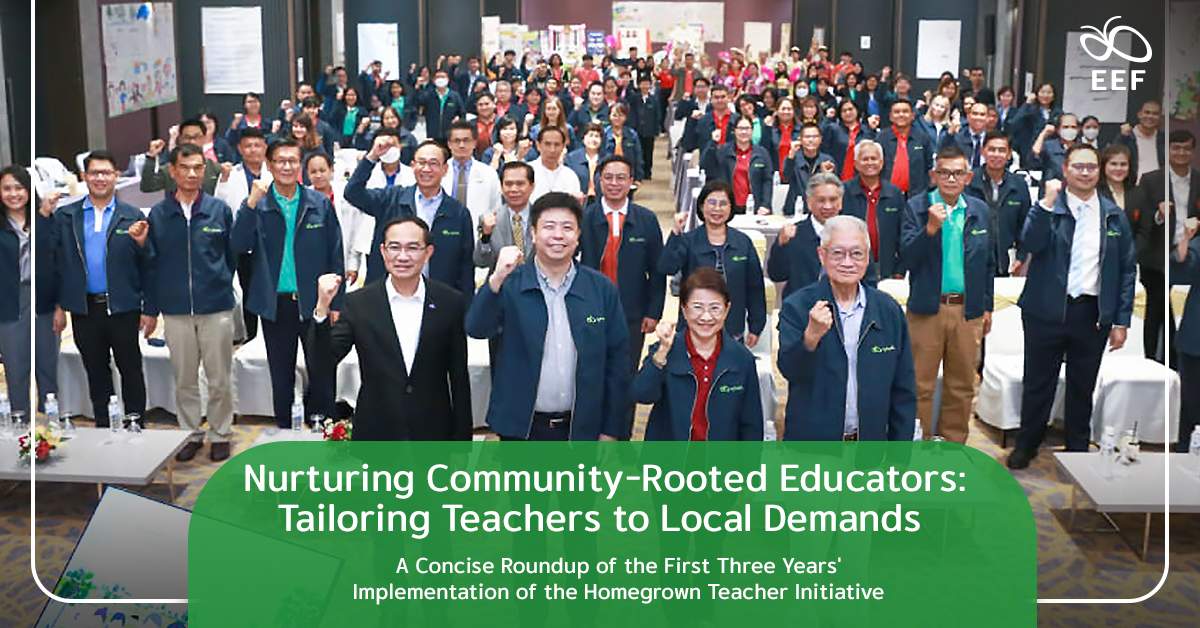
The Homegrown Teacher initiative, a collaboration between the Equitable Education Fund (EEF) Thailand and local teacher training institutions, seeks to identify, nurture, and support developer-teachers who will return to serve in their remote and underserved hometowns upon graduation, requiring additional skills beyond those of regular teachers. This initiative has expanded to over 50 provinces nationwide, empowering a new generation of teachers with tailored educational management skills and a commitment to community development. To date, three cohorts of scholarship recipients have already benefited from the program. Reflecting on the experiences of seven teacher training institutions, the EEF strives to inspire and support all participants in the Homegrown Teacher initiative. This journey signifies a transformative step toward restructuring the country’s teacher training system.
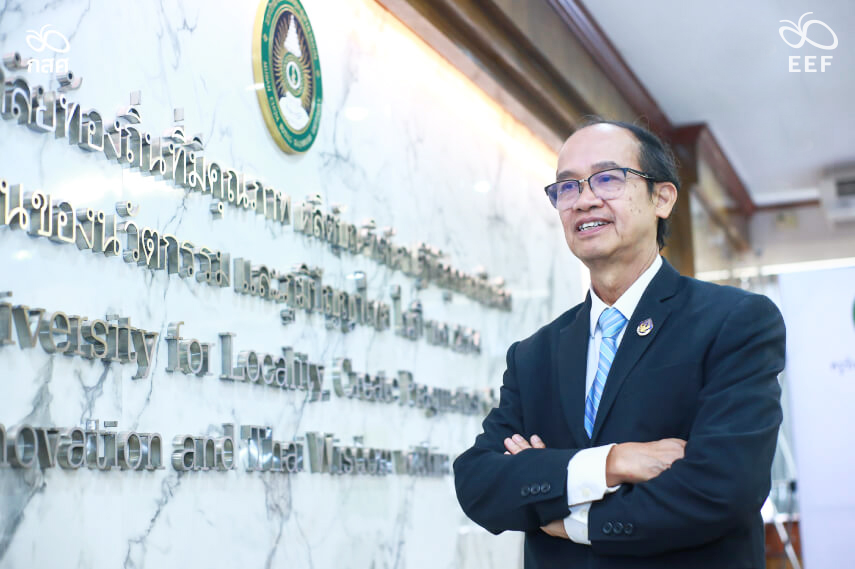
As one of the pioneering institutions to embrace the initiative, Muban Chombueng Rajabhat University stands at the forefront of cultivating transformative educators from remote areas, urging individuals from remote areas to return and uplift their hometowns. Since its inception, the institution has prioritized community needs, transforming its teacher production system to address local demands, with ongoing participation in the Homegrown Teacher initiative’s fourth cohort over the past three years. With a focus on ethnically diverse marginalized schools and stateless children, it advocates for policies promoting multilingualism and vocational skills to tailor teacher production. The curriculum, “Academics, Profession, Life,” emphasizes practical learning experiences in students’ future teaching environments, fostering deep connections to local challenges. This prepares students for their journey as educators, instilling a commitment to community development.
Recognizing the unique challenges faced by teacher students hailing from tourist areas, Phuket Rajabhat University prioritizes language proficiency as a critical aspect of their training. With an understanding of the pivotal role language plays in effective teaching, especially in diverse and multicultural settings, the university underscores the significance of immersive learning environments provided by its demonstration schools. These institutions, specializing in early childhood and primary education, serve as dynamic hubs where teacher students not only cultivate their teaching skills but also acquire specialized knowledge in languages and information technology (IT). This holistic approach equips future educators with the essential tools to design innovative teaching methodologies, fostering a deep connection with their students and the local communities they serve, perfectly encapsulating the essence of the Homegrown Teacher initiative.
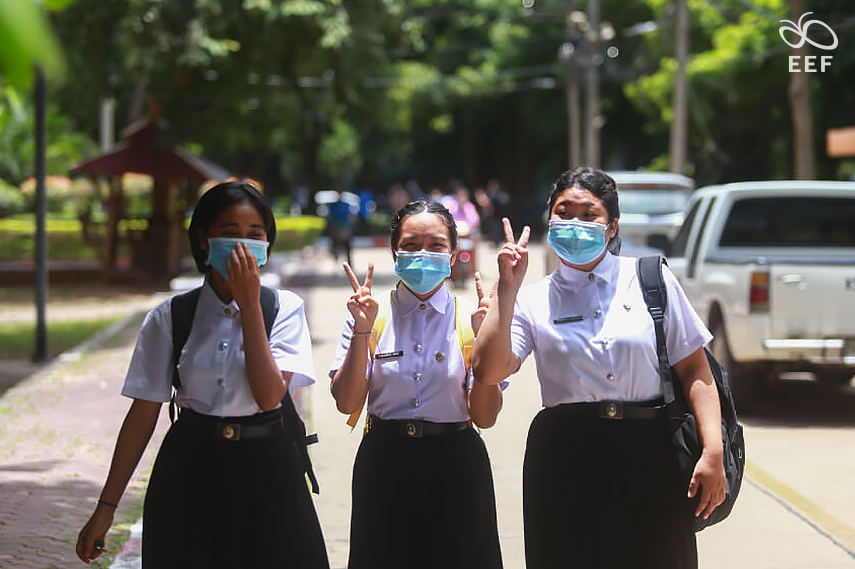
Kalasin University, recognizing the unique challenges faced by educators in marginalized communities where agriculture prevails, has spearheaded an innovative program to cultivate “practical teachers” adept at adapting to local life. Part of the Homegrown Teacher initiative, this program is rooted in a curriculum tailored to meet the distinct needs of these communities, emphasizing hands-on learning experiences essential for navigating the intricacies of rural life. Through real-world immersive training, students are equipped with practical skills necessary for addressing the genuine challenges prevalent in agricultural areas. Furthermore, the university places significant emphasis on fostering self-reliance among its students, ensuring they master essential life skills, such as basic healthcare, waterwork, and electrical work. These competencies are deemed crucial not only for educators but for all individuals navigating remote areas.
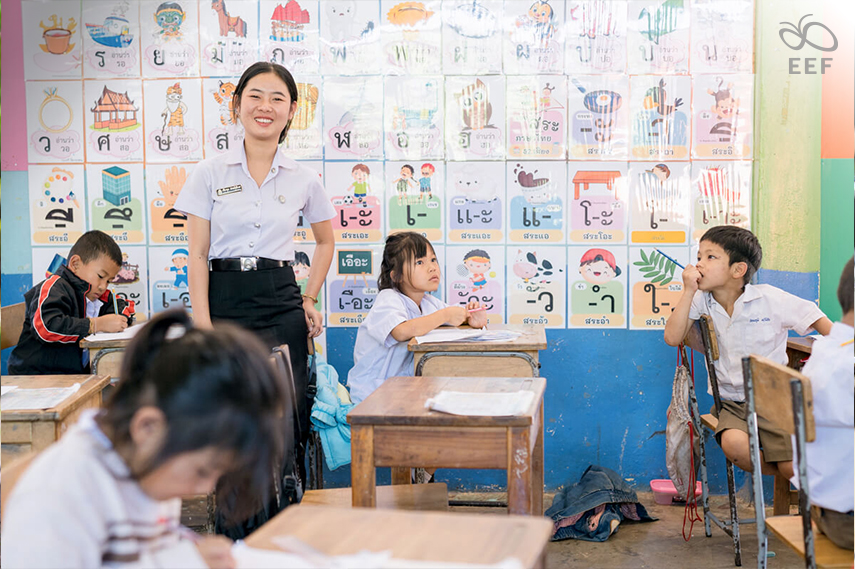
Chiang Mai Rajabhat University prioritizes instilling teacher students with a profound sense of their role in community development. Throughout their training, students are urged to seize opportunities for personal growth and become agents of change within their communities. This emphasis is integrated into individualized curricula, highlighting the significant impact these students will have. The institution’s curriculum design focuses on the future prospects of destination schools and communities, integrating cultural integration and cross-disciplinary approaches. By fostering innovative learning practices tailored to community needs, the university equips teachers with diverse instructional skills and encourages them to think beyond conventional frameworks. Embracing the Homegrown Teacher initiative, the university aims to revolutionise the national teacher production system, serving as a catalyst for effective reform in teacher training and development.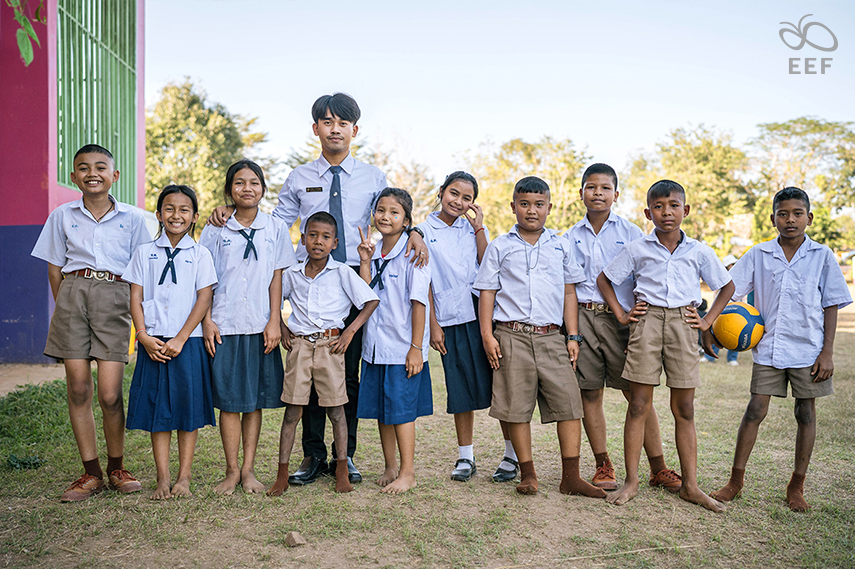
Valaya Alongkorn Rajabhat University, a stalwart participant in the Homegrown Teacher initiative since its fourth cohort, draws upon its rich experience in local development spanning decades. With a firm commitment to innovation, the university is poised to produce teachers who can affect meaningful community change. Building on the collective wisdom of past cohorts, it aims to establish a network of teacher training institutions primed for driving local development. Equipped with abundant resources and a faculty comprising experienced developer-lecturers, the university integrates local innovations into its curricula and collaborates with other teacher training institutions to tailor curricula to local development needs. Through collaborative efforts and knowledge exchange, it seeks to forge a comprehensive network for teacher training and development, paving the way for transformative policy-level changes.

Khon Kaen University, recognizing the vital role of education in remote areas, places a significant emphasis on nurturing high-quality teachers tailored to the unique challenges faced by small-sized schools. With a targeted focus on early childhood and primary education, the university’s teacher development curricula are meticulously designed to elevate teaching standards in these remote settings. Emphasizing the need for teachers to possess multifaceted skills, including nurturing abilities and a deep understanding of children’s needs, Khon Kaen University aims to cultivate educators who serve as pillars of support and guidance. In its inaugural participation year, the university is dedicated to expanding educational horizons by creating a blueprint for the production and development of teachers committed to shaping the future of remote communities.
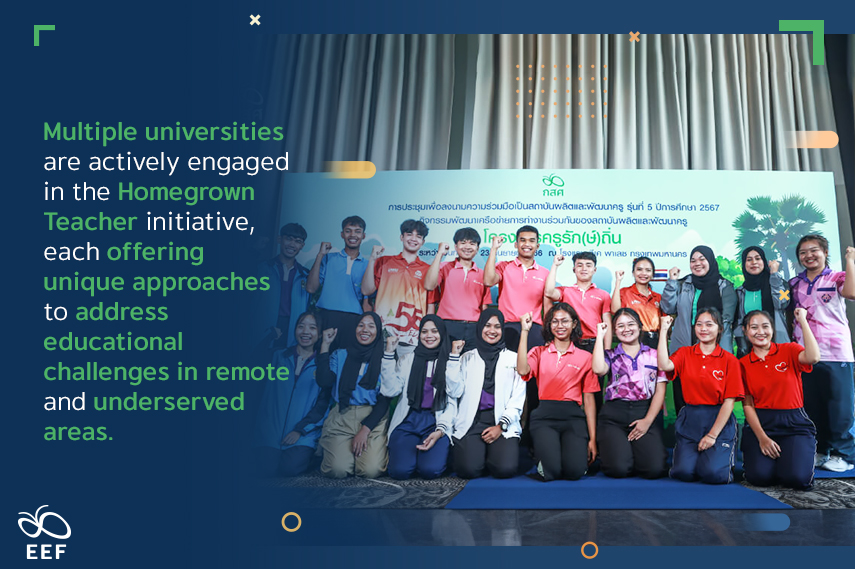
Multiple universities are actively engaged in the Homegrown Teacher initiative, each offering unique approaches to address educational challenges in remote and underserved areas. These efforts prioritize community needs, focusing on developing transformative educators capable of driving positive change in their hometowns. Through customized curricula, immersive training, and practical skills emphasis, these universities aim to equip teacher students to tackle diverse challenges in their future teaching environments. Together, these initiatives represent a collective commitment to revolutionize the national teacher production system, fostering a network of skilled educators poised for community development. By integrating local innovations, collaborating with other institutions, and emphasizing cultural integration, these initiatives aim to elevate teaching standards and empower educators to catalyze change within their communities. Through interconnected endeavors, the Homegrown Teacher initiative holds significant potential to impact educational outcomes and improve the quality of life in remote areas.
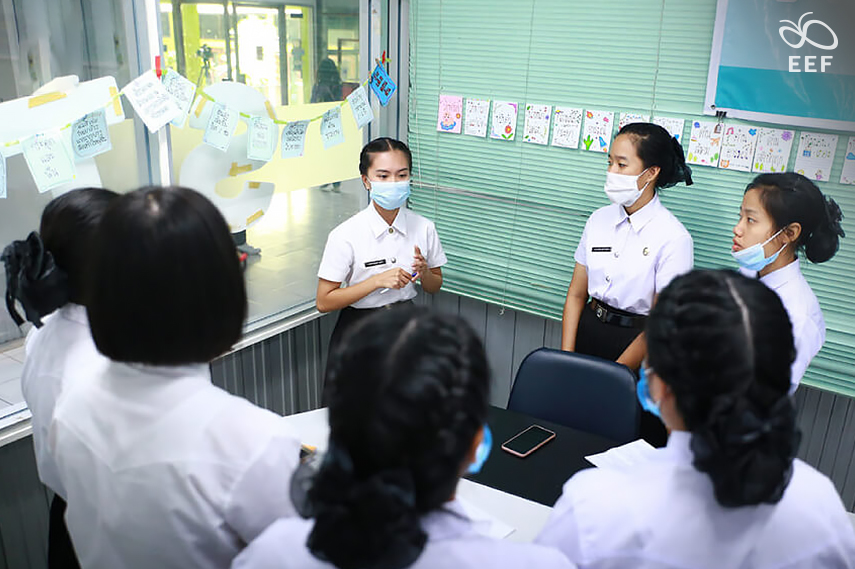
In essence, the Homegrown Teacher initiative, fostered through collaboration between the Equitable Education Fund (EEF) Thailand and local teacher training institutions, embodies a collective commitment to address educational disparities in remote and underserved areas. By nurturing a new generation of transformative educators equipped with tailored skills and a profound dedication to community development, these initiatives aim to revolutionize the national teacher production system. With an emphasis on innovation, collaboration, and holistic approaches to education, the EEF and its partner institutions strive to empower teachers to serve as catalysts for positive change within their communities. Through this concerted effort, the Homegrown Teacher initiative not only elevates teaching standards but also cultivates a brighter future for generations to come, echoing the EEF’s mission of reducing education inequality through research, collaboration, and support for children, youth, and adults in need and promoting equitable access to quality education for all.

